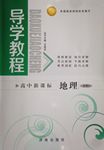题目内容
【题目】请根据上下文内容,将文中划线部分译成汉语或者英语。
Today I saw the ancient Roman city of Pompeii as it was 2,000 years ago. How amazing! The city was forgotten for many years until the 18th century when a farmer found some stone with writing on it. 【1】 人们开始挖掘 in the area for treasure, which caused much damage.
【2】 当我在街上走时 ,I saw streets just as they had been, with stepping stones along the road so you did not have to step in the mud in the streets on rainy days! 【3】 I saw several houses with wall paintings . I also saw bodies of people that had been turned to stone when they had been covered with ash—they are kept exactly as they were 2,000 years ago. 【4】The volcano is still there. 【5】 It’s hard to imagine how this peaceful volcano destroyed the whole city .
【答案】
【1】People started to dig.
【2】When I walked around the city.
【3】我看见一些房子有壁画。
【4】火山还在那。
【5】很难想象这座平静的火山是怎样摧毁整个城市的。
【解析】
【1】People started to dig. 考查动词的用法。Start to do 开始做某事;
【2】When I walked around the city. 考查时间状语从句;
【3】我看见一些房子有壁画。 考查句子翻译;
【4】火山还在那。 考查句子翻译;
【5】很难想象这座平静的火山是怎样摧毁整个城市的。考查固定句型。It is adj +主语从句;

 导学教程高中新课标系列答案
导学教程高中新课标系列答案【题目】
A. marketedB. experienceC. increasedD. deliberately E. indicate F. controlledG. potentiallyH. currentlyI. convenienceJ. backed K. access |
Young children may face serious health risks from popular energy drinks, such as Monster, Red Bull and Rock Star, 【1】 causing heart problems and other life-threatening conditions, according to the findings of new researches.
During a presentation at the annual Cardiac Scientific Sessions 2014 meeting of the American Heart Association (AHA), researchers warned about the risk of allowing young children 【2】 to the energy drinks, which contain high amounts of caffeine(咖啡因) and other stimulants.
Researches 【3】 that the energy drinks are not intended for young children and are not safe for them to consume. Steven Lipshultz, M.D., lead author of the study, is calling for a warning on all energy drink cans and bottles, warning parents of the risk of allowing children to drink them.
Researchers say it is difficult to know exactly how much caffeine is contained in each can or bottle of energy drinks, since they are often 【4】 as dietary supplements (补充物), which allow the manufacturers to avoid FDA regulations.
Energy drink manufacturers have compared the amount of caffeine in their products to that in hot drinks sold in coffee houses, but their products are often packaged in very large sizes and they are not sold in 【5】 environments like coffee houses, which typically would not serve young children. Energy drinks are widely available in 【6】 stores next to traditional soft drinks, typically packaged in very similar cans and using similar marketing techniques.
Some energy drinks in many of the popular lines can contain up to 400 mg of caffeine per can. In comparison, a cup of coffee typically has around 100 mg of caffeine. Caffeine poisoning can occur in adults at levels higher than 400 mg a day; however, children under 12 can 【7】 caffeine poisoning at only 2.5 mg per 2.2 pounds of body weight.
A study published in September 【8】 up the new findings, revealing energy drinks may cause serious heart problems. French researchers revealed the popular energy drinks may be linked to 【9】 risk of irregular heartbeats and even sudden death.
The FDA is 【10】 investigating health concerns surrounding the drinks after numerous negative event reports have been made in recent years connecting energy drinks to severe injuries and deaths.